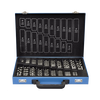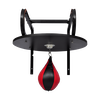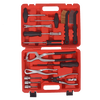How to start a dropshipping business in the UAE
Step 1: Plan your dropshipping business
Map out your business plan to establish what you will sell and who you
will sell to. Include your competitor research, details of your chosen
niche, products you will sell, pricing strategy, and marketing activities.
Find a reputable dropshipping supplier
To start dropshipping in the UAE, you will need a supplier that operates
in the country.
DropshippingXL is a
trusted dropshipping programme with over 90,000 products across home and
garden, pet supplies, sports equipment, and children's toys niches.
With global warehouses, including one in the UAE, your Emirati customers
will enjoy high quality items, fast delivery, and easy returns.
Step 2: Choose the type of business entity
There are three business licensing options in the UAE. These are free
zones, mainland, and offshore. They each offer a different business
ownership structure.
Free zone
Within the UAE, there are more than 40 free trade zones in Dubai.
-
Ownership: 100% business ownership for expatriates and foreign
investors.
-
Taxes: Benefit from 0% value-added tax (VAT), income tax, corporate tax
or customs.
-
Business activity: Companies within a free zone cannot trade with the
mainland without a local agent.
Mainland (onshore)
Dubai mainland companies operate outside of the free zones. It is an
economic zone regulated by the Department of Economic Development (DED).
-
Ownership: 100% business ownership for expatriates and foreign
investors.
- Taxes: 9% corporate tax on income exceeding AED 375,000.
-
Business activity: There are no restrictions on where to do business in
the UAE, including the free zones.
Offshore (non-resident)
Offshore companies are registered in Dubai but don't trade with or have
physical office space on the mainland.
-
Ownership: 100% business ownership for expatriates and foreign
investors. However, the business cannot have a physical presence in the
UAE.
-
Taxes: Benefit from 0% value-added tax (VAT), income tax, corporate tax
or customs.
-
Business activity: There are no restrictions on where to do business in
the UAE, including the mainland and free zones.
Step 3: Register your trade name
Registering your trade name is mandatory for a business licence in the
UAE. The application requires three name choices according to a few basic
rules, such as not using religious or governing authority names or
offensive language. Apply for your company name on the
Department of Economic Development website
.
Step 4: Get a business licence
It's a legal requirement to obtain a business licence before starting
dropshipping or any form of business (online and offline) in the UAE.
There are three options available for ecommerce:
1. eTrader licence
This licence allows you to sell products registered in the UAE. Only UAE
or Gulf Cooperation Council (GCC) nationals are eligible. You can go to
the
Department of Economic Development website
to apply online.
2. Portal licence
A portal licence allows you to connect buyers to sellers. It is open to
non-UAE nationals and expatriates and is ideal for online businesses that
sell on Amazon, Noon, eBay or similar e-marketplaces. To apply, contact
the free zone where you want to operate directly. For the mainland, visit
the
Department of Economic Development website
.
3. Virtual company licence
Entrepreneurs living outside of the UAE are eligible for a virtual company
licence. This allows the legal conduct of online business in the UAE. It
is only applicable for computer programming, design, and print and
advertising services. Register for this licence via the
Dubai Commercial City website.
Step 5: Rent an office space
This step is only relevant to ecommerce businesses that operate on the
mainland of UAE. In that case, you'll need an office space of at least 200
square feet.
Step 6: Open an Emirati business bank account
Finally, you will need to open a business bank account in the UAE. This
allows you to monitor your cash flow and business expenses, apply for
business loans, and for tax purposes.








































